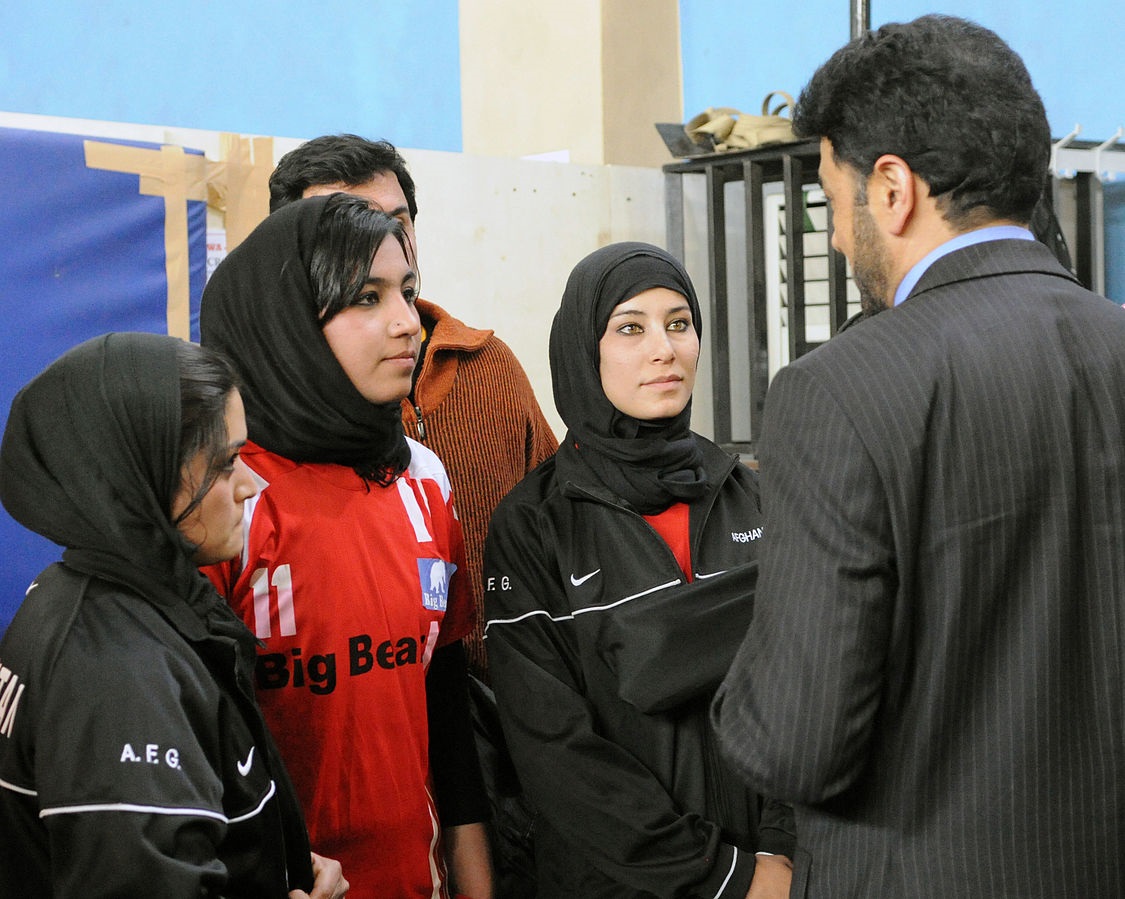Opinion: Athletes Have the Right to Practice Their Religion … and Their Sport

By Maheen Haq
The writer is a grass-roots activist from Hagerstown. She is a second-year law student at Georgetown University and intends to center her career in human rights and civil rights law.
I was only 12 years old. It was a cold January night in 2011, one of the most important days of my life. As I finished my lay-up, I glanced over and saw my coach debating fiercely with the referee. He called me over and sat me down. “Look, honey, I don’t understand why, but you can’t play today. … The referee says you can’t play because of your headscarf.”
My throat tightened in disbelief. I did not understand the world of hatred I was surrounded by. I remember going to the bathroom and taking off my scarf. I looked at the cloth. Something I considered the crown upon my head, today felt like a noose around my neck.
As a child, I was forced to make a choice that no child should ever have to make: strip off a piece of clothing that was so important and sacred to me or miss out on a game I had been training for all season.
I was in my developing years unaware of the harsh realities of Islamophobia I was surrounded by. This experience was a trauma that had lasting effects throughout my development. Maryland House Bill 515, the Inclusive Attire Act, which focuses on protecting religious freedom in school sports, would ensure that this never happens to someone else.
This instance of discrimination in athletics was not unique to me. There have been many Muslim women and individuals of other faiths who have been denied equal access to athletic sports and development.
Bilqis Abdul Qaadir was denied the opportunity to play professionally in the International Basketball Federation while wearing her hijab. Qaadir was an accomplished athlete and to this day, she holds the highest high school career scoring record in the state of Massachusetts. However, when it came time for her to play professionally, she was denied because of her hijab.
In our very own state of Maryland, in 2017, Je’Nan Hayes was benched because of her hijab.
The head official informed her coach right before the game of a rule that required “documented evidence” that Hayes needed to wear her hijab for religious reasons. The executive director of the Maryland Public Secondary Schools Athletic Association stated in support of Hayes, “Why are we denying what would be approved if they were to put a simple request into the association?”
The Prince George’s County athletic director also agreed that the referees made a mistake when denying Hayes the opportunity to play. He stated that “everybody has apologized. … If the situation happens again, we’ll deal with it in a better fashion.”
But why are we waiting for this type of discrimination to happen again?
It is time that we pass legislation to ensure this type of Islamophobia and discrimination does not occur, and send a clear message that it is not tolerated. So long as we do not pass legislation that protects our freedom of religion in athletics, organizers, referees and other athletic participants will arbitrarily enforce rules to deny access to Muslim women and other individuals, we will effectively be allowing private citizens to enforce state-sanctioned discrimination under the guise of arbitrary “safety” rules.
Simultaneously, these rules will force young Muslim women to choose between practices of faith and playing sports they love jeopardizing their safety and making them incredibly vulnerable.
If the Maryland General Assembly refuses to pass legislation that protects an individual’s right to practice their religion and be an athlete, this legislative body is sending a clear message: We do not care about you.
Chief Justice Earl Warren stated in the unanimous decision of the Supreme Court in the groundbreaking Brown v. Board of Education that desegregated schools, “To separate them from others of similar age and qualifications solely because of their race generates a feeling of inferiority as to their status in the community that may affect their hearts and minds in a way unlikely ever to be undone.”
This is true of separating religious minority students in athletics as well.
I intend to raise my future daughters in Maryland. When I do, I never want them to feel unprotected and experience the discrimination I faced. But regardless of how the General Assembly votes, I will continue to demand and will raise my daughters to demand the equality we deserve. Because we have always had the power. And I will raise them to walk in it — regardless of what any legislative body says.
The choices of the Maryland legislators are vividly clear: support bigotry or support equality. The choice is theirs.




 Creative Commons Attribution
Creative Commons Attribution